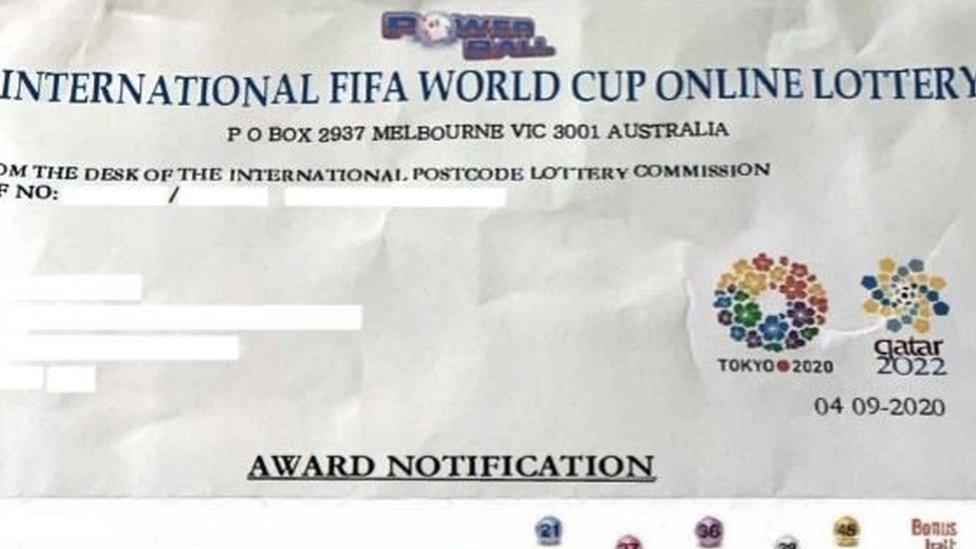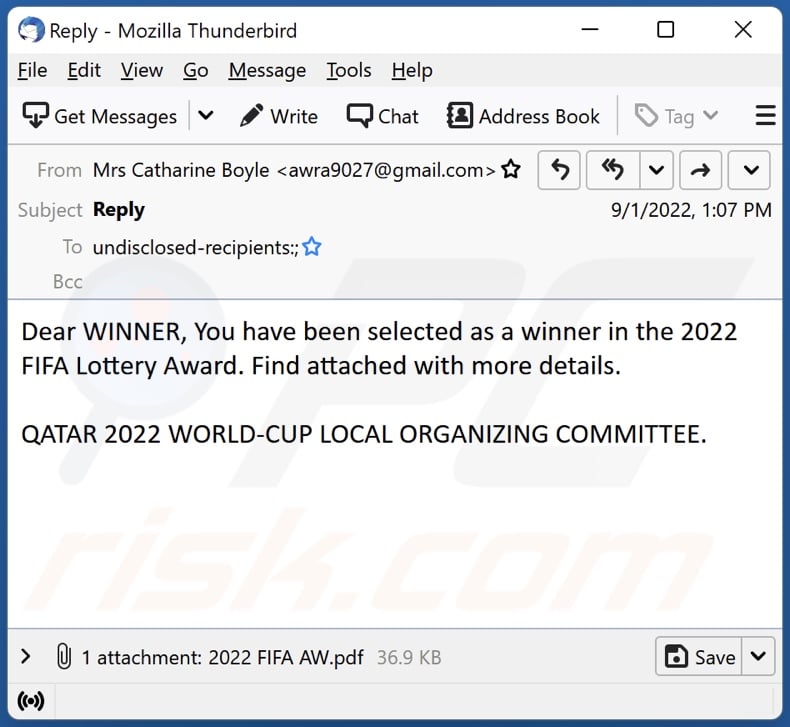Man, let me tell you, I just had to dive deep into this lottery mess. You see these things pop up every four years, and I always kinda side-eye them, but this time? This time it hit close to home.

My old neighbor, you know, Uncle Mike, he calls me up last month. Kid you not, he sounds like he just won the actual World Cup. He says he got an email, all official-looking, saying he won a huge cash prize—like, millions—from the “Official 2026 FIFA Draw.”
I told him straight up, “Hold on, Mike. Slow your roll.” He was already talking about how he just needed to wire them a “processing and tax clearance fee” of about three grand. Three thousand bucks to get millions? That sniffed wrong. That’s when I decided I had to actually run the experiment myself. I wasn’t just gonna preach; I was gonna see what they did.
Setting Up the Trap: My Deep Dive
I quickly set up a dedicated burner email address and fired up a fresh virtual machine—I wasn’t about to let these clowns touch my main rig. My goal was simple: get all the fake lottery emails I could find and see the full lifecycle of the scam. I wanted to document their entire playbook.
I searched up every sketchy-looking “World Cup Prize Winner” page on the internet. I put my burner email on those dodgy forms that asked for “confirmation details.” Within two days, my inbox was swimming with these things. I’m talking ten different “World Cup Organizations” all claiming I was their one lucky winner. It was a goldmine of pure fraud.
I tracked every single email thread and documented their demands. They all followed the same broken script. I observed the patterns in real time, pretending to be a super enthusiastic, slightly confused recipient.

What I Found: The Red Flags I Collected
Here is the pure, raw data I pulled from playing along with these scumbags:
- The Initial Contact was Always Wrong: It was never through an official, established channel. It was a random Gmail, a weird-looking Yahoo address, or sometimes just a WhatsApp text message. I checked the domain names every single time, and guess what? Zero relation to FIFA. They used generic, slightly misspelled versions of the official name, hoping people wouldn’t notice the tiny typos.
- The Language Was a Mess: These guys are global, but their grammar sure isn’t. The emails were full of simple typos and terrible, stilted phrasing. Real, multi-billion dollar companies just don’t send out official notices saying, “Dear winner, you have been selected for this amazing prize money immediately transfer your tax fee now.”
- The Demand Curve Escalated Fast: This is the big one. First, they demanded the processing fee—the “tax clearance” money, just like they hit Uncle Mike up for. When I replied pretending to be confused and stalling, they upped the pressure. They started throwing in deadlines, saying my “prize would expire within 48 hours” and threatening legal action if I didn’t comply. Some of them even sent official-looking letters with ridiculously fake notary stamps. I ran reverse image searches on these stamps, and they were all generic stock photos found in two seconds online.
- The Payment Method Was Sketchy: No established bank transfer with verification. They universally pushed for wire transfers to an individual’s name, or worse, gift cards or Bitcoin wallets. I played along for a bit longer on one thread to see who the money would go to—always some random name in a totally different, distant country. Nobody legit asks you to pay a seven-figure tax bill using Apple gift cards.
My Final Word and How I Saved Mike
After collecting all the screenshots and solid evidence, I sat Mike down and walked him through my burner inbox. Seeing my name as a “winner” on ten different, contradictory documents finally clicked for him. He deleted the original email thread and blocked the phone number that had been texting him. Crisis averted, thank goodness.
If you see one of these things, this is the simple rule of thumb I established from all this grunt work. Don’t overthink it:
- Did you buy a ticket? If you didn’t enter anything, you can’t win. Period. Lotteries need tickets.
- Are they asking you to pay them first? Any legitimate prize hands you the money, deducting taxes after the fact, or sends an official tax form you deal with later. They don’t demand an upfront payment in Walmart gift cards to release a million-dollar check.
- Check the email address and contact details. If it’s a Hotmail, AOL, or a random cell phone number, it’s not the multi-billion dollar football organization.
Stay sharp, folks. I went through this headache so you don’t have to. These scams are everywhere, trying to capitalize on the excitement of something big like the World Cup. But once you know the pattern—the fake urgency, the demand for upfront fees, the bad email addresses—they’re dead easy to spot. Don’t let them hustle you out of your hard-earned cash.
